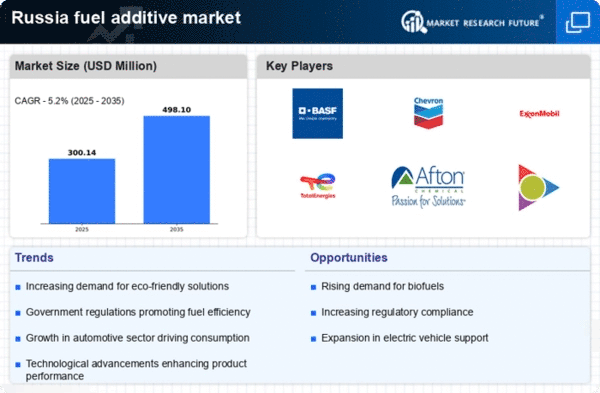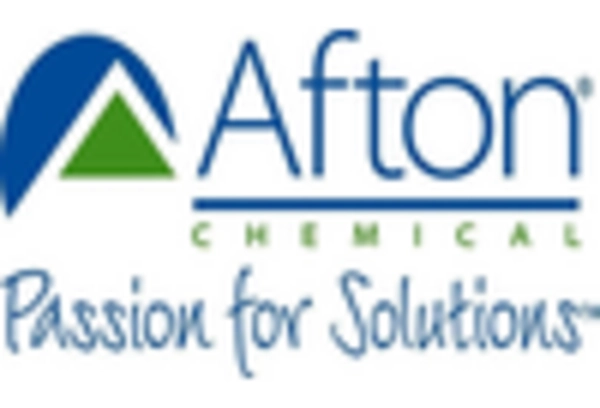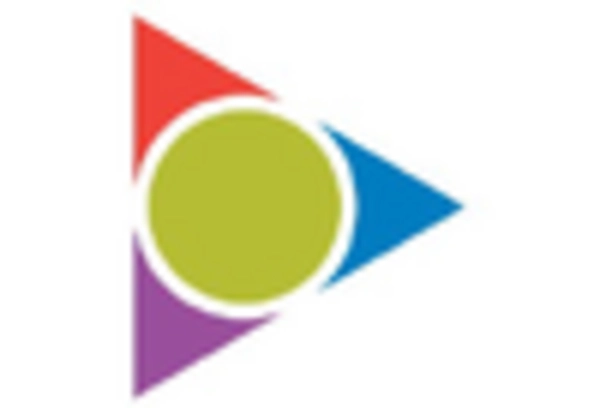The fuel additive market in Russia is characterized by a competitive landscape that is increasingly shaped by innovation, sustainability, and strategic partnerships. Key players such as BASF (DE), Chevron (US), and Afton Chemical (US) are actively pursuing strategies that emphasize technological advancements and regional expansion. For instance, BASF (DE) has focused on enhancing its product portfolio through the development of eco-friendly additives, which aligns with the growing demand for sustainable solutions in the energy sector. Meanwhile, Chevron (US) has been investing in digital transformation initiatives to optimize its supply chain and improve operational efficiency, thereby positioning itself as a leader in the market.The market structure appears moderately fragmented, with several players vying for market share. Localizing manufacturing and optimizing supply chains are critical tactics employed by these companies to enhance their competitive edge. The collective influence of major players, including ExxonMobil (US) and TotalEnergies (FR), suggests a dynamic environment where collaboration and competition coexist, driving innovation and efficiency across the sector.
In October Afton Chemical (US) announced a strategic partnership with a leading Russian oil company to co-develop advanced fuel additives tailored for the local market. This collaboration is expected to leverage Afton's expertise in additive technology while addressing specific regional needs, thereby enhancing product relevance and market penetration. Such partnerships are indicative of a broader trend where companies seek to align their offerings with local market demands, potentially leading to increased customer loyalty and market share.
In September TotalEnergies (FR) launched a new line of bio-based fuel additives aimed at reducing carbon emissions in response to stringent environmental regulations in Russia. This initiative not only underscores TotalEnergies' commitment to sustainability but also positions the company favorably in a market that is increasingly prioritizing eco-friendly solutions. The introduction of these products may enhance TotalEnergies' competitive positioning as consumers and regulators alike demand greener alternatives.
In August Chevron (US) expanded its research and development capabilities by establishing a new innovation center in Russia, focusing on the development of next-generation fuel additives. This move is likely to bolster Chevron's competitive advantage by fostering innovation and accelerating the time-to-market for new products. The establishment of such facilities reflects a growing trend among major players to invest in local R&D, which can lead to tailored solutions that meet specific market needs.
As of November the competitive trends in the fuel additive market are increasingly defined by digitalization, sustainability, and the integration of artificial intelligence. Strategic alliances are becoming more prevalent, as companies recognize the value of collaboration in driving innovation and enhancing supply chain reliability. The shift from price-based competition to a focus on technological advancement and sustainability is likely to redefine competitive differentiation in the coming years, suggesting that companies that prioritize innovation and customer-centric solutions will emerge as leaders in this evolving landscape.
















